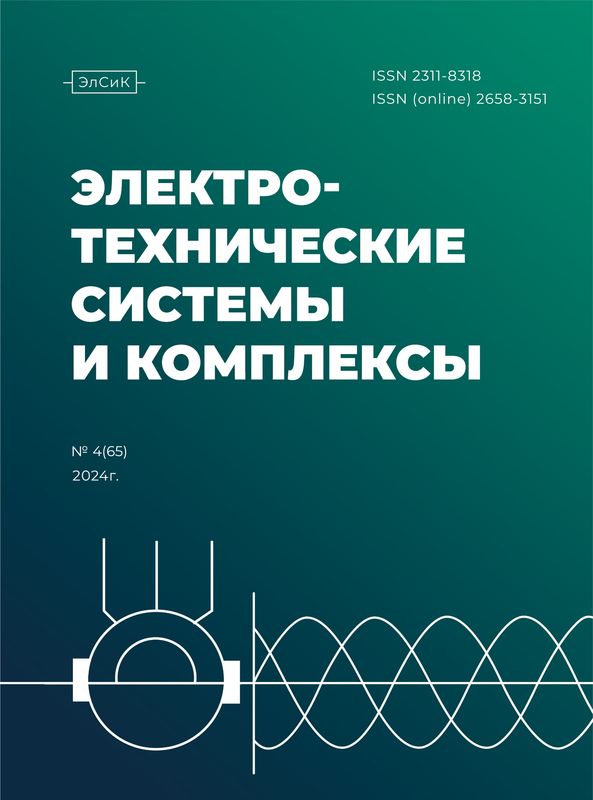Abstract
The purpose of this study is to develop a methodology for modeling the characteristics of a fuel-free energy source (BIEN) as part of a wind turbine and an energy accumulator (AE) based on data from one and a half year three-level measurements of wind parameters with a 10-minute resolution at a mast wind measuring complex (VIC) in the village of Temryuk (Krasnodar Territory). The technical criteria and conditions necessary and sufficient for the creation of a BIEN based on wind turbines and AE have been determined. Taking into account the time structure of the wind, the optimal ratios of nominal wind turbine capacities and battery capacities providing fuel-free energy supply according to specified load schedules at monthly and annual time intervals have been determined. The developed technique is numerically implemented in the form of programs in C++ and in the EXСEL environment and verified during methodological multivariate calculations. The results of the calculations and analysis of the operating modes of the BIEN allowed us to establish that in order to ensure the functions of the BIEN throughout the year in wind-climatic conditions in the Temryuk area, it is necessary to use a large capacity as part of the BIEN AK (a multiple of energy consumption from five to ten days) and wind turbines of rated power exceeding the power consumption by 5 times or more. It has been established that the wind turbine of the nominal capacity optimal for BIEN provides annual electricity generation exceeding the specified annual consumption by 5-10 times, which is supposed to be used for technological purposes in the form of electric or thermal energy. The optimal ratios of the rated power of the wind turbine and the capacity of the AC components of the BIEN with an annual guarantee of fuel-free energy supply are determined by the developed methodology based on the data from 10-minute measurements on the VIC. At the same time, as calculations show, their fairly accurate annual values can be estimated from measurements of wind speeds in the least wind–provided months (in the Temryuk area in July), which significantly reduces the time and cost of pre-design surveys in terms of wind monitoring.
Keywords
wind power plant, energy storage system, battery capacity, temporary variability of wind, load schedule (energy consumption)
1. Raspredelennaya energetika v Rossii: Potentsial razvitiya (Distributed Power Engineering in Russia: Potential for Development). Available at: https://energy.skolkovo.ru/ downloads/documents/SEneC/Research/SKOLKOVO_EneC_DER-3.0_2018.02.01.pd (accessed 21 May 2024). (In Russian)
2. Tyagunov M.G., Vikulov A.N. Renewable power generation in the distributed energy systems. Santekhnika. Otoplenie. Konditsionirovanie. [Sanitary Engineering. Heating. Conditioning], 2018, no. 7, pp. 52-61. (In Russian)
3. Denisov R.S., Elistratov V.V., Gsenger Sh. Wind power in Russia: opportunities, barriers and prospects. Nauchno-tekhnicheskie vedomosti SPbGU. Estestvennye i inzhenernye nauki [St. Petersburg polytechnic university journal of engineering sciences and technology], 2017, no. 23(02), pp. 17-27. doi: 10.18721/JEST.230202. (In Russian)
4. Elistratov V.V. Stand-alone Power Generation of Russian Regions based on Renewable Energy Resources. Energeticheskiy vestnik [Energy herald], 2016, no. 21, pp. 44-59. (In Russian)
5. OOO «NPP«GARANT-SERVIS». Available at: https:// www.garant.ru/products/ipo/prime/doc/404825003/ (accessed 22 April 2024)
6. Nikolaev V.G., Ganaga S.V., Kudryashov Yu.I. Natsionalnyy kadastr vetroenergeticheskikh resursov Rossii i metodicheskie osnovy ikh opredeleniya. [National Survey Cadastre of Russian Wind Energy Resources and Methodological Basics for their Definition]. Moscow, Atmograf Publ, 2008, 584 p. (In Russian)
7. Tyagunov M.G., Sheverdiev R.P. Determining the Type of Energy Storage Devices for RES-Based Hybrid Energy Complexes to Suit the Energy Complex Operation Modes. Vestnik Moskovskogo energeticheskogo instituta [Bulletin of MPEI], 2020, no. 4, pp. 62-70. doi: 10.24160/1993-6982-2020-4-62-70 (In Russian)
8. GOST R 70928-2023. Renewable generation. Wind power engineering. Wind power stations. Guidelines for estimating of wind-climatic characteristics and technical-and-economic indexes for small wind turbines. Moscow, Rosstandart Publ., 2023. 208 p. (In Russian)
9. Gamova A.A. Increasing the efficiency of wind power stations design using the data of mast wind measuring complexes and meteorologic stations. Sbornik trudov VI Mezhdunarodnogo nauchno-issledovatelskogo konkursa "Molodoy uchenyy" [Collection of scientific papers of VI International scientific research contest "Young Scientist"]. Penza, ISCS «Nauka i Prosveshchenie» Publ, 2022, pp. 24-28. (In Russian)
10. Gamova A.A., Nikolaev V.G. Some Urgent Tasks of Russian Wind Power Engineering Development in Terms of Wind-driven Power Plants and Wind Power Stations Design. Doklady XX Mezhdunarodnoy nauchno-prakticheskoy konferentsii "Vozobnovlyaemaya i Malaya energetika – 2023" [Papers of XX International scientific and practical conference "Renewable and Small-scale Power Engineering – 2023"]. Mocsow, MPEI Publ., 2023, pp. 78-84. (In Russian)
Gamova A.A. Methodology for Determining the Characteristics of Fuel-Free Energy Sources Based on Wind Turbines and Energy Storage Systems Based on Mast Measurements. Elektrotekhnicheskie sistemy i kompleksy [Electrotechnical Systems and Complexes], 2024, no. 2(63), pp. 60-65. (In Russian). https://doi.org/10.18503/2311-8318-2024-2(63)-60-65










